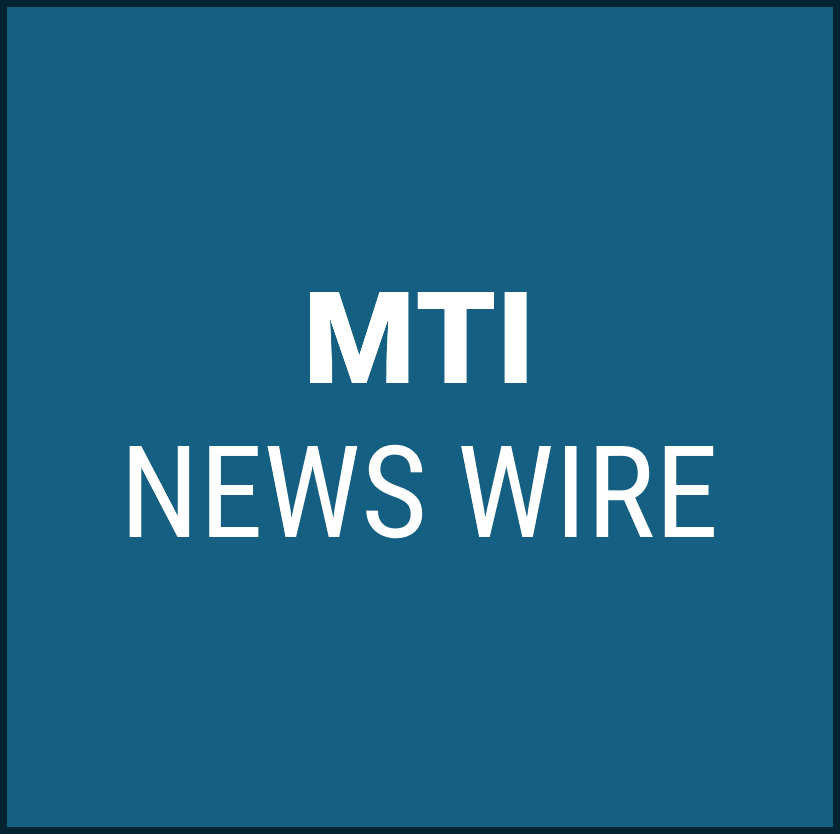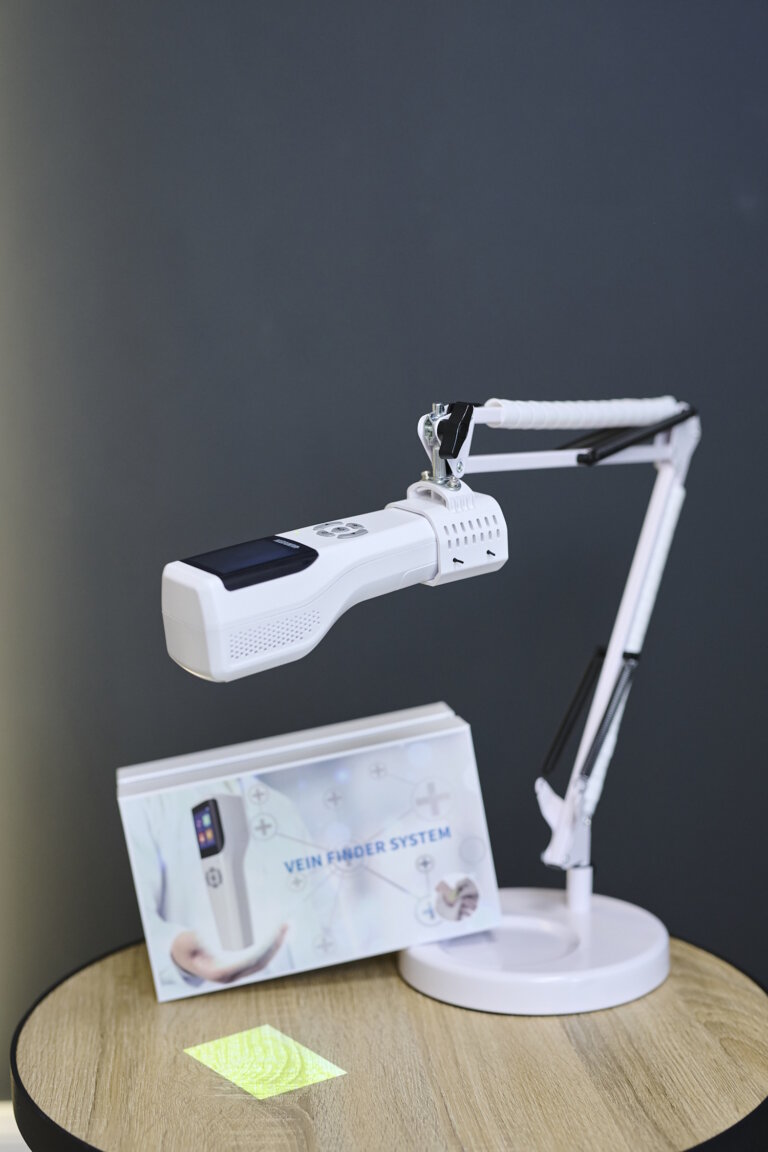HealthPopuli.com – Read More
Financial stress and anxiety have an ‘outsized’ negative impact on the well-being of women in America, compared to male counterparts, we learn in Health. Wealth, and Happiness – Helping to overcome roadblocks to women’s well-being, a report from the Guardian Life Insurance Company.
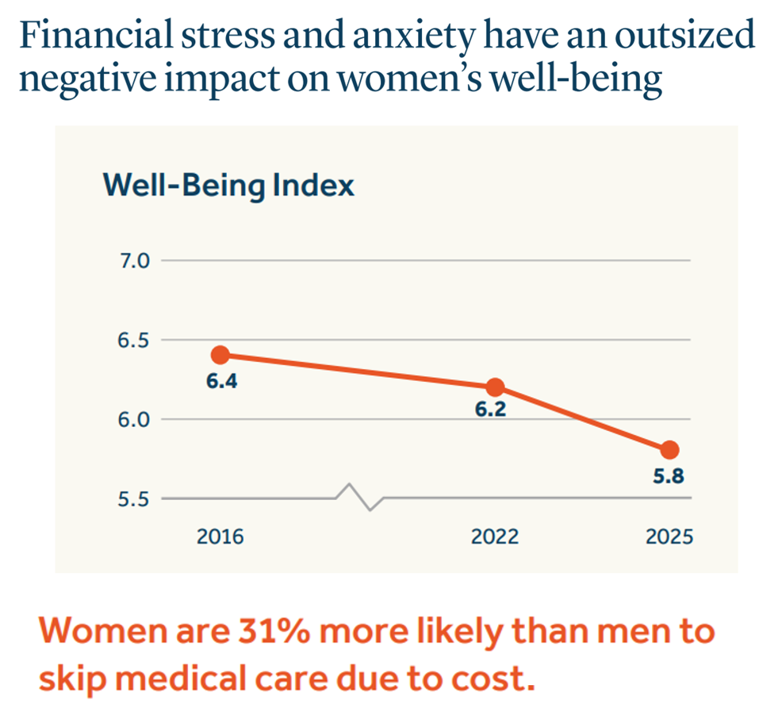
This report is part of Guardian’s annual research program called Mind, Body, Wallet, which the company launched 14 years ago. The goal of Mind, Body. Wallet is to assess how health citizens define “well-being” in daily living, making the crucial connections between mental health (“Mind”), physical health (“Body”), and money (“Wallet”)…asking health citizens the simple question, “What’s your well?”
Women’s overall well-being across these three components has steadily decreased since 2016, as the line chart illustrates going down and to the right.
This downward trend is especially acute for single mothers and caregivers: 42% of single moms and 38% of caregivers are living paycheck to paycheck, Guardian found in the 2025 research. These women are also more likely to delay health care (such as regular medical checkups and health screenings), and may not get enough sleep or exercise. 
For all women, the top five of six sources of stress relate to money: namely the state of their personal finances, the cost of living, paying off debt, saving for retirement, and the cost of housing. The sixth source of stress beyond the “financial five” is mental health, impacting roughly the same percentage of women feeling the stress of paying down debt, saving for retirement, and paying housing costs (35-37%).
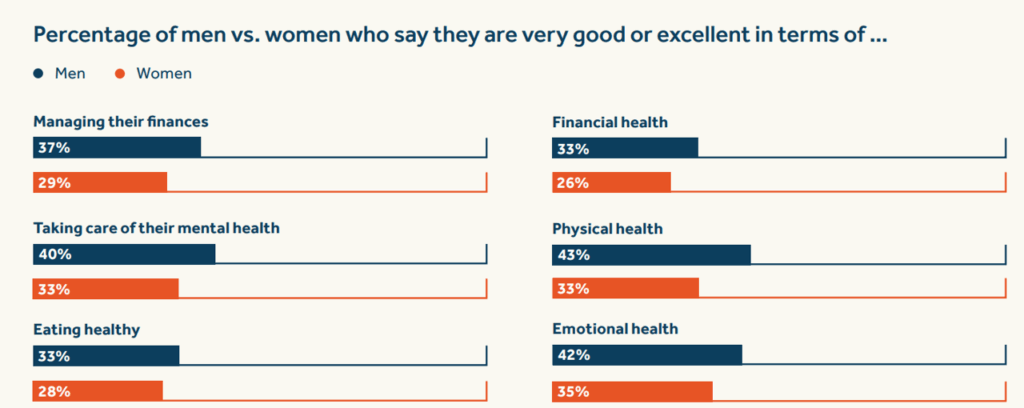
‘
More men than women in the U.S. feel they are good or great at managing a range of health-related tasks — including managing finances, taking care of mental health, eating healthfully, dealing with physical health, and finally their emotional health.
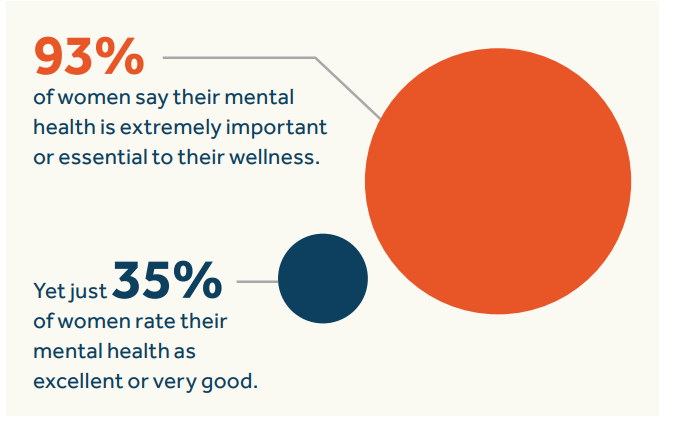
Health Populi’s Hot Points: If we can point to a “pink tax” on health that U.S. women bear more significantly versus men, it would be on mental health: while 93% of women told Guardian that their mental health was essential to their wellness, only 35% of women rated their mental health as excellent or good.
“Women who manage personal responsibilities at work, deal with work during off-hours, and mentally carry work into their personal time are 81% more likely to report feeling burned out,” the Guardian report observed.
Women’s “invisible labor” is the added cost and risk to well-being, which takes a toll on mental health.
The report offers several recommendations in the concluding section, two of which are shown in the last graphic:
- Learn to lean on others, and,
- Make sure your to-do list includes you.
These two points encompass a theme I covered a month ago here in Health Populi exploring a report from Duckbill titled, “Permission to Ask.”

In detailing “the weight women carry,” the Duckbill research learned that more women than men don’t ask for help because they don’t want to burden other people, they are nervous the help won’t meet their expectations, they don’t know exactly “who” to ask, and they aren’t sure they’d even get the help they need if they did ask for it.
Then there is the issue making oneself (“you”) a noun on one’s “to-do” list.
Here, the research reveals that women tend to put other peoples’ needs (children, aging parents, treasured friends) before their own needs.
Team Guardian says, “Give yourself permission to catch up with a friend, go for a walk, engage in a favorite hobby, listen to music, or spend some time reading.”
This advice is meant to target both employers sponsoring health benefits as well as the working women (and men!) employed in those companies. That includes permission and access to both time to vent and pre-vent burnout and super-stress as well as providing easy and affordable on-ramps to primary care and preventive health services.
For employers sponsoring health insurance for workers, they have an opportunity to both close a costs-gap in women’s higher out-of-pocket spending cited by Deloitte than male working peers, as well as attending to well-designed mental health benefits and services as well as financial planning support. Thinking beyond strictly “physical health” benefits toward more holistic inclusion of “Mind, Body, and Wallet” considerations will go far to help address the pink tax working women pay for going to work.
The post Women Walk a Financial Tightrope: What That Means for Women’s Health, Mind, Body, & Wallet appeared first on HealthPopuli.com.

